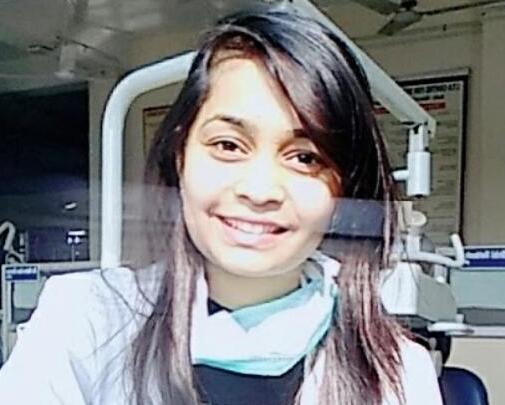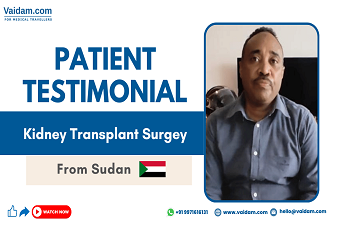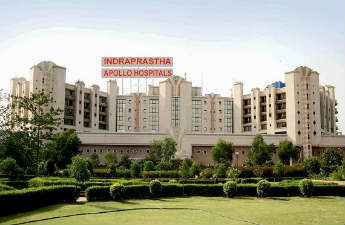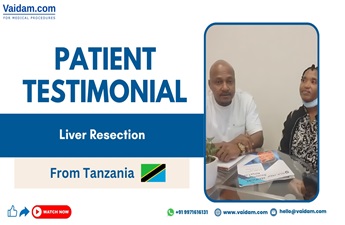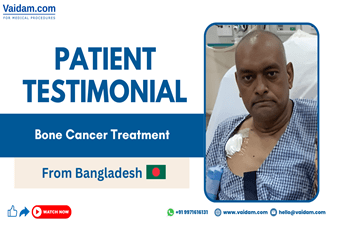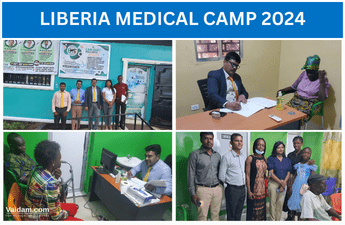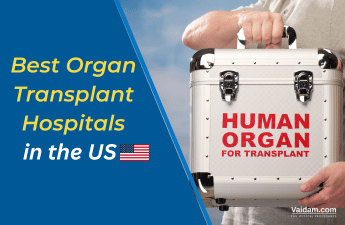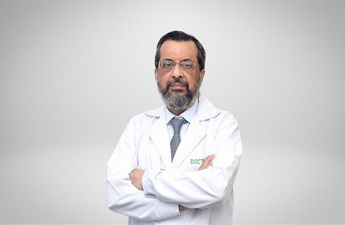Kidney Failure
Kidney is the blood-filtering organ of the human body that removes excess fluid and waste from the blood. Unfortunately, when kidneys cease to function, the toxic fluids accumulate in the body and are perilous for human body a condition known as kidney failure or end-stage kidney disease.
Get in Touch with Medical Experts
When a patient loses 90 to 95 percent of his or her kidney function, they are considered to have End Stage Renal Disease (ESRD). At this point, life-saving treatment becomes necessary. Treatment options for patients with ESRD or kidney failure are dialysis (where an artificial kidney machine removes waste from the blood) or a kidney transplant from a living or deceased donor. Sometimes, a patient with 85 percent loss of kidney function will undergo a transplant which allows them to avoid having to go on dialysis.
What is a Kidney Transplant?
A kidney transplantation is a surgical procedure of implanting a kidney from one person (donor) into the patients (recipients) body. The new transplanted kidney can do the work that your two kidneys did when they were healthy.
The kidney may come from a deceased organ donor or from a living donor. The donated kidney may be from:
-
A living related donor - related to the person receiving the transplant, such as a parent, sibling, or child
-
A living unrelated donor - such as a friend or spouse
-
A deceased donor - a person who died recently and was willing to donate his/her healthy kidney
The healthy donor kidney is transported in cool salt water (saline) that preserves the organ for up to 48 hours. This gives the health care providers time to perform tests to ensure that the donors and recipient's blood and tissue matches.
After transplant, no dialysis treatment is required. The patient feels better and has more energy to enjoy life. Many restrictions which were imposed during dialysis are withdrawn.
Kidney Donor Requirements
The following summarises in details a kidney donor's requirements or the criteria which validates a person as a relevant kidney donor.
Healthy adults,
-
Between the age of 18 to 55 years
-
Who do not have kidney related illness
-
Who do not have diabetes, high blood pressure, cardiac problems
-
Who do not have hereditary kidney problems
One kidney can be donated because life can be sustained on one kidney. The donor can live a normal life even with one kidney.
Deceased donors,
Deceased donors can be divided in two groups:
-
Brain-dead (BD) donors
-
Donation after Cardiac Death (DCD) donors
Who Can Receive a Kidney?
People fulfilling the below criteria can receive a kidney. Below 60 years of age, with
-
No cancer or history of cancer
-
No Hepatitis
-
No cardiac disease
-
No active auto-immune disease (SLE)
-
No untreated urinary reflux or bladder problems
-
No mental illness
-
No infections
(The list is not exhaustive)
Know more:
- Best Kidney Transplant Hospitals in India
- Best Kidney Transplant Surgeons in India
- Cost of Kidney Transplant in India
Benefits of Kidney Transplant
Kidney Transplant is called a "Gift of Life" as it's a life-saving operation and re-establishes the quality of life for patients.
There are a lot of benefits of kidney transplant. A successful transplant means:
-
No more dialysis
-
For most people it means a longer life and improved quality of life
-
Allows freedom of choice of food and liquid
-
Enables a more normal lifestyle, including freedom to travel
-
Can improve fertility and many people have successful pregnancies after a transplant
Evaluation for Transplant
If your doctor thinks you may benefit from having a kidney transplant, then they will start with a transplant evaluation. The evaluation includes:
-
Blood tests: Blood tests are done to help find a good donor match, to check your priority on the donor list, and to help the chances that the donor organ will not be rejected.
-
Diagnostic tests: Diagnostic tests may be done to check your kidneys as well as your overall health status. These tests may include X-rays, ultrasound, kidney biopsy, and dental exams. Women may get a Pap test, gynecology evaluation, and a mammogram.
-
Mental health evaluation: Psychological and social issues involved in organ transplantation, such as stress, financial issues, and support by family and/or significant others are assessed. These issues can greatly affect the outcome of a transplant. The same kind of evaluation is done for a living donor.
The transplant team may decide that you are not ready for transplant. This could happen if you have a health problem that could make the transplant surgery dangerous for you. Some health problems can be treated so that you can have your transplant. Other problems that could keep you from having a transplant include:
-
Drug or alcohol abuse
-
Mental illness
-
History of missing treatment sessions or not taking medicines
-
Not having a strong support system
Kidney Transplant Procedure
There are two kidney transplant procedures: an open nephrectomy and a laparoscopic nephrectomy.
In an Open Nephrectomy, an incision approximately 12 inches long is made in the abdomen. Sometimes the surgeon must remove a rib. The ureter (the tube that carries urine from the kidney to the bladder) is cut between the bladder and the kidney, and blood vessels are cut and clamped before the kidney is removed. The incision later is closed with stitches or staples. The procedure takes two - three hours. Some benefits of open nephrectomy include:
-
Allowing surgeons to place sterile ice directly on the kidney to prevent damage during surgery
-
Donors experience less urinary leakage after surgery
Laparoscopic nephrectomy is minimally invasive. It uses a wand-like camera called a laparoscope to view the abdominal cavity. The kidney is then removed through a small incision. Laparoscopic surgery takes approximately two hours. Its advantages are:
-
Shorter recovery time
-
Shorter hospital stay
-
Smaller incisions
-
Fewer post-operative complications
The transplant surgery is performed under general anesthesia. The operation is a heterotopic transplant meaning the kidney is placed in a different location than the existing kidneys. (Liver and heart transplants are orthotropic transplants, in which the diseased organ is removed and the transplanted organ is placed in the same location.) The kidney transplant is placed in the front (anterior) part of the lower abdomen, in the pelvis.

Blood is then able to flow through the new kidney, and the kidney will begin to filter and remove wastes and to produce urine.
The new kidney usually begins to function right away. In most cases, diseased or damaged kidneys are not removed unless they are causing severe problems such as uncontrollable high blood pressure, frequent kidney infections, or are greatly enlarged.
Surgery Complications
The following complications do not occur often but can include:
-
Bleeding, infection, or wound healing problems.
-
Difficulty with blood circulation to the kidney or problem with flow of urine from the kidney.
-
These complications may require another operation to correct them.
After Transplant
The recipient may have to stay in the hospital for at least 15-30 days after operation so that the Nephrology team can monitor progress of the transplant and assist the patient is getting well soon and for ensuring that the transplant is working properly. The total recovery period is about 6 months.
The donor has to stay in the hospital after the transplant operation for at least a week. This stay is necessary to ensure that the other kidney is functioning properly and the wound of the transplant is healing fast
Your transplant team will watch your recovery process during your stay in the hospital.
-
Care after your transplant: After leaving the hospital, you'll need to stay nearby for two to three weeks so your doctors can monitor your new kidney function and your recovery.
-
Follow-up care: Your doctor will update your primary health care provider about your progress and give recommendations for your care at home. You'll have follow-up appointments on an annual basis or more frequently if necessary.
-
Medications: You'll need to take immunosuppressant medications for life to keep your body from rejecting your kidney. Your transplant team will discuss your new medications in detail.
-
Returning to wellness: The transplant team considers your return to wellness after your transplant a priority. You'll be given specific guidelines to increase your activity through a supervised exercise plan and nutrition plan. Your transplant team will work with you to help you make healthy lifestyle choices to achieve an optimal transplant outcome
Rejection
The failing of the kidney after transplantation is called Rejection. After rejection occurs, the patient has to go back on dialysis or get ready for next transplant to extend his life. Chances of rejection can be decreased by the following two steps:
-
Proper tissue matching and cross matching prior to transplantation and
-
Appropriate and regular dose of immunosuppressive agents.
Kidney Transplant Success Rate
Almost everyone feels that they have a better quality of life after the transplant
The success rate of kidney transplantation varies depending on whether the donated organ is from a living donor or a deceased donor as well as the medical circumstances of the recipient.
| Success Rate of Kidney Transplantation | |||||
|---|---|---|---|---|---|
| Type of Donor | 1 year | 3 years | 5 years | 10 years | |
| Living Donor | Graft Survival | 95% | 88% | 80% | 57% |
| Patient Survival | 98% | 95% | 90% | 64% | |
| Deceased Donor | Graft Survival | 90% | 79% | 67% | 41% |
| Patient Survival | 95% | 88% | 81% | 61% | |
Source: Scientific Registry of Transplant Recipients (SRTR).
In contrast, dialysis patients have 4-7 fold greater chance of dying as compared to transplant recipients.
Why India?
The question succeeding the where to go for kidney transplant issue is the one that is very important to ensure safe recovery. Most major countries offer great kidney transplants, though the issues that patients in the developed countries usually face are the huge bills and long waiting periods.
Whereas India has grown to become one of the leading countries for cardiac surgeries and other such organ replacement medical care. Indian surgeons are well known all over the world for their skill and experience. Hospitals in India are well equipped with the latest and most sophisticated technology for a successful transplant. A huge number of skilled professionals provide various treatments to over 65000 medical tourists every year.
Many patients favor kidney transplant and they look upon India as the preferred destinations as it allows for more than 52% savings and provides par excellence medical care.
Legal Requirements in India
All organ transplants and thus kidney transplant in India is governed by rules laid out by the Government of India. The rules for kidney transplant in India are quite strict and any deviation from the law attracts heavy punishment. The important highlights of kidney transplant in India are as follows:
-
Close relatives can donate kidney to the patient. Siblings, parents, children and spouse come under the category of 'close relatives'.
-
In cases where the donor is not a close relative, government permission is required and is given only if it is established that there is no commercial angle whatsoever to the donation.
If the proposed donor or the recipient or both are foreigners and are seeking kidney transplant operation in India, a senior Embassy official of the country of origin or the government of the country concerned (authenticated by the Embassy concerned in India) has to certify the relationship between the donor and the recipient.
Any commercial transaction between the donor and the patient is considered illegal and attracts heavy punishment.
Waiting list
After a patient chooses transplantation as an option for treatment of kidney failure, the patient will either have to search a donor on his own or register himself in a waiting list of a transplant institute. Then the patient has to wait till a suitable kidney has been procured for him. This wait is generally quite long and till that time the patient has to continue on dialysis.


